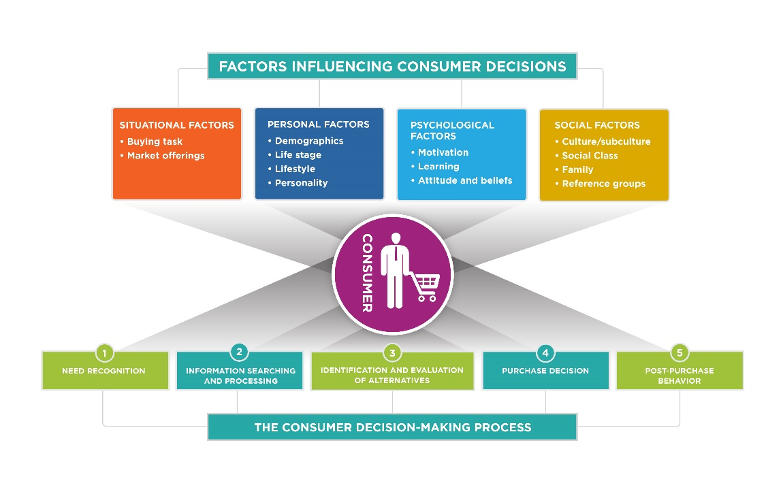The Role of Customer Service in Marketing
An organization’s capacity to deliver great customer service is just as important to its achievement in today’s fiercely competitive business environment as its products or services. Customer service is more than just a division within a company; it is essential to the development of a company’s marketing plan and its overall achievement.

Why Synchronize Marketing with Customer Service?
Enhancing Customer Loyalty
A key component of retaining customers is providing them with outstanding service. Customers are more inclined to stick with your brand if they have a pleasant interaction with your customer service representatives. Not only can loyal consumers increase revenue, but they also work as brand ambassadors, generating goodwill and drawing in new clients. Your marketing efforts can be greatly impacted by this loyalty, which can lower the cost of acquiring new customers and raise the average lifetime value of your existing clientele.
Building Trust and Credibility
One of the most valuable resources in the business world is trust. Emphasising your marketing messages in line with real customer interactions strengthens credibility and confidence. When the customer care you provide matches the marketing promises you made, your brand image becomes dependable and consistent. Conversely, inconsistent messaging could harm customer trust by inciting scepticism.
Gathering Valuable Feedback
Direct feedback from customers can be collected through the use of the customer service department as a channel. Insights gained from customer feedback in the form of enquiries, complaints, and ideas can be invaluable to the development of your marketing tactics. You will be able to find pain spots, places for improvement, and new chances to improve your goods or services, customise your advertising efforts, and more successfully meet the expectations of your customers if you analyse the feedback that you have received and consider it.
Reducing Churn Rate
By resolving problems in a timely and efficient manner, excellent customer service can assist in lowering the rate of customer retention. Customers look for speedy solutions when they experience issues or have questions. By resolving their issues promptly, customer care personnel that has received enough training can reduce the number of clients that leave their service. Your marketing activities will save both time and resources by allowing you to concentrate on keeping existing customers rather than continuously running after new ones if your customer turnover rate is low.
How Can Customer Service and Marketing Work Together?

Shared Data and Insights
Establishing a smooth flow of sharing data and ideas between these two essential parts of your company’s operations is necessary to close the communication gap that exists between marketing and customer service. Customer service personnel are constantly interacting with customers and serve as the company’s face to the public. They have a treasure trove of useful information regarding the most common customer difficulties, frequently asked inquiries, and the general opinion of your customer base as a whole. This data encompasses not only the logical and analytical components of customer interactions, such as questions and complaints but also the experience and psychological components of those interactions.
Your marketing team will acquire invaluable knowledge if they make use of the wealth of data at their disposal. They can use such knowledge to inform marketing initiatives, the creation of content, and possibly product development by putting these findings to use. This feedback may result in good improvements or changes, which can then be advertised as a customer-centric project. For instance, if customer service sees a persistent problem with a certain product characteristic, this feedback can contribute to product enhancements or updates.
Consistent Messaging
Making sure that your company’s messages are consistent across all departments and locations is an essential component of productive cooperation between marketing and customer service. Imagine that your advertising materials tout your company’s exceptional customer service, but that when a customer contacts your service team, they are met with an entirely different reality. This discrepancy has the potential to destroy trust and credibility much more quickly than you could ever anticipate. As a result, it is of the utmost importance that the marketing messages you use precisely reflect the experience that your customers have when interacting with your company.
For your messaging to be consistent, you need to make sure that the promises made in your advertising programmes are consistent with the level of care provided by your support staff for customers. Because of this coherence, clients can have confidence in the cohesive and trustworthy brand image that is created. Customers are more likely to believe in your dedication to ensuring their happiness when they observe your company putting its values into practice.
Training and Collaboration
It is necessary to make investments in training programmes and foster teamwork if one wishes to be certain that the teams responsible for marketing and customer care are on the same page. Training programmes ought to be developed to assist your customer support crew in gaining an understanding of the marketing strategy employed by your business. They need to understand the primary messaging, the core values that your brand stands for, and the goals of the numerous marketing efforts. Because of this understanding, they can connect their interactions with the overarching aims of the brand, which helps to reinforce the consistent messaging that was stated previously.

In addition, the promotion of collaboration among both of these departments is of the utmost importance. A greater awareness of each other’s roles and objectives can be cultivated through the use of regular discussions, means of interaction, and shared forums for the sharing of ideas. Customer service can acquire insights into prospective marketing activities by learning from marketing about client concerns and real-world difficulties. Marketing may gain knowledge from client service about customer problem points and real-world issues. This sharing of information is critical to the development of a cooperative and amicable working relationship.
Feedback Loops
It is necessary to build feedback loops that promote the transfer of information and insights between customer service and marketing to keep the tie between the two fields as strong as possible. It is the responsibility of marketing to anticipate the needs of customer service and provide them with information regarding planned campaigns, advancements, and product releases. When this is done, customer service can better equip itself to efficiently manage questions and concerns relating to the abovementioned projects.
By doing this, possible gaps between marketing claims and the provision of customer service are avoided. On the other hand, customer support ought to aggressively communicate with the marketing team regarding customer feedback, persistent problems, and typical pain areas. This feedback is very helpful in developing messaging and marketing strategies. This enables marketing to confront customer problems head-on and show that it is dedicated to ongoing development.
Use Customer Stories
Humanising your brand is an effective strategy for connecting with your audience and demonstrating your dedication to the delight of your customers. Utilising real customer anecdotes and testimonials in your advertising and marketing products is one of the most efficient ways to accomplish this goal. Not only does highlighting successful interactions with customer service serve to reaffirm your company’s commitment to providing outstanding service, but it also has a profound effect on new customers. When consumers see that others have experienced favourable experiences dealing with your team of customer service representatives, it increases the likelihood that they will trust your brand and choose to purchase it.
Your marketing efforts will benefit from the addition of authenticity and relatability provided by these customer anecdotes, which will ultimately make your company seem more approachable and trusted. These tales, whether in the form of a sincere testimonial or an account of how your support staff went beyond what was required for a client, have the potential to be appealing tools in your armoury of marketing strategies.
Loyalty from customers is essential to the survival of any successful enterprise. The development and maintenance of a loyal customer base depend critically on providing outstanding customer service. Customers are more likely to build emotional connections with a company when they receive assistance from customer care representatives that is timely, efficient and demonstrates empathy. It is impossible to stress the importance of providing excellent customer service in today’s highly interconnected business environment. Both are essential to one another, contributing equally to the development of a favourable public perception of the brand, the cultivation of loyal consumers, and the achievement of commercial success. Businesses can establish a dynamic synergy that is beneficial to both their consumers and their bottom line if they synchronise their marketing efforts with their customer service efforts and encourage collaboration between both departments. Keep in mind that providing excellent customer service is also providing excellent marketing from the perspective of the customer.

